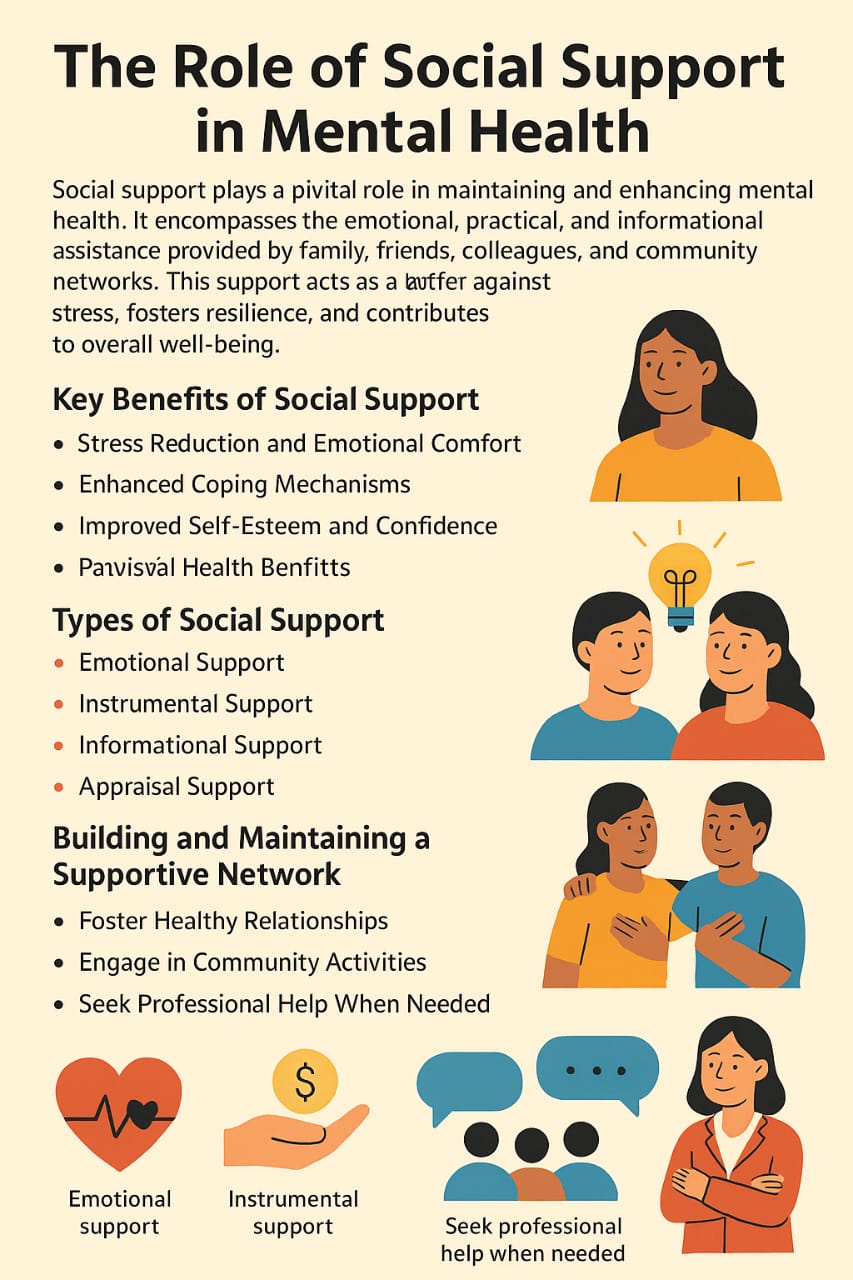Social support plays a pivotal role in maintaining and enhancing mental health. It encompasses the emotional, practical, and informational assistance provided by family, friends, colleagues, and community networks. This support system acts as a buffer against stress, fosters resilience, and contributes to overall well-being.
Key Benefits of Social Support
1. Stress Reduction and Emotional Comfort
Engaging with a supportive network can alleviate stress and anxiety. Sharing concerns with trusted individuals provides emotional relief and perspective, making challenges more manageable .
2. Enhanced Coping Mechanisms
Individuals with strong social ties are more likely to adopt healthy coping strategies, such as problem-solving and seeking help, rather than resorting to maladaptive behaviors like substance abuse .
3. Improved Self-Esteem and Confidence
Positive reinforcement and validation from social connections can boost self-esteem and confidence, which are crucial for mental health .
4. Prevention of Loneliness and Isolation
Regular social interactions help prevent feelings of loneliness and isolation, which are risk factors for depression and other mental health issues .
5. Physical Health Benefits
Strong social support is associated with better physical health outcomes, including lower blood pressure, improved immune function, and faster recovery from illnesses .
Types of Social Support
• Emotional Support: Providing empathy, care, love, and trust.
• Instrumental Support: Offering tangible assistance, such as financial help or help with daily tasks.
• Informational Support: Sharing advice, suggestions, and information.
• Appraisal Support: Providing feedback and constructive criticism to help individuals evaluate their situation .
Building and Maintaining a Supportive Network
• Foster Healthy Relationships: Invest time and effort in building and maintaining meaningful relationships.
• Engage in Community Activities: Participate in community events and groups to expand your social network.
• Seek Professional Help When Needed: Don’t hesitate to seek professional support if you’re struggling to cope with mental health challenges.
In conclusion, cultivating a strong social support system is essential for mental health. It provides emotional comfort, practical assistance, and a sense of belonging, all of which contribute to resilience and overall well-being.


